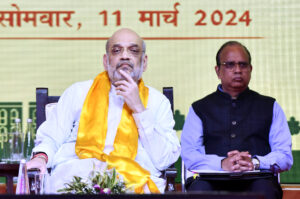Railways to use only made-in-India components, but can it end dependence on China?
[ad_1]
Chairman of Railway Board VK Yadav said on Friday that the Railways aims to use for only made-in-India components and reduce imports to zero.
Yadav’s statement comes a day after the Railways decided to terminate the contract of a Chinese company due to “poor progress” on the signalling and telecommunication work on the Eastern Dedicated Freight Corridor’s 417-km section between Kanpur and Mughalsarai.
“We are making efforts to see that the products manufactured by the Railways are exported,” VK Yadav said during an online media briefing.
Responding on whether the Railways was considering banning Chinese companies from participating in its infrastructure biddings, Yadav said, “Mostly, we are inviting tenders where only domestic bidders are allowed to participate.”
Every year, the Railways makes 7,000-8,000 coaches and the components in these coaches are imported from European companies and even from China.
The Indian Railways had signed an agreement to import about 6,000 LBH axles worth USD 44,70,000 from Chinese company CRRC Datong Co Ltd., Shanxi. A contract for the delivery of 1,500 BG axles costing USD 10,84,5000 was also signed in October last year with the same company. The delivery was to happen in 7 months.
The Railway Board awarded the contract and issued a letter on May 6. The total delivery is to be made in 5 months.
Another deal for 4,000 units of LHB Axles worth USD 30,40,152 was made with the Chinese company CRRC Yangtze Tongling co Ltd, Anhui Province and the contract was awarded on March 5 this yeat. The delivery is expected to be made till July 2020.
Apart from these, brake equipment cost about Rs.15-20 lakh per coach; LED lights, switches and raw materials for fire-proof electric cables cost about Rs 10-15 lakh per coach; PU foam (Poly-Urethane foam), used in sheet and berths, costing Rs 3-4 lakh per coach. These are all imported from China and other European countries as well.
For the past two-three years, the Railways has taken many steps to reduce the import content, Railway officials said.
“We have implemented the Make in India policy. For example in our signalling system, the way we have initiated the tender policy, our make-in-India component has become more than 70 per cent,” said CRB.
However, reducing dependence on cheaper imports from China could come at an escalated cost for the debt-laden national transporter.
[ad_2]
Source link







